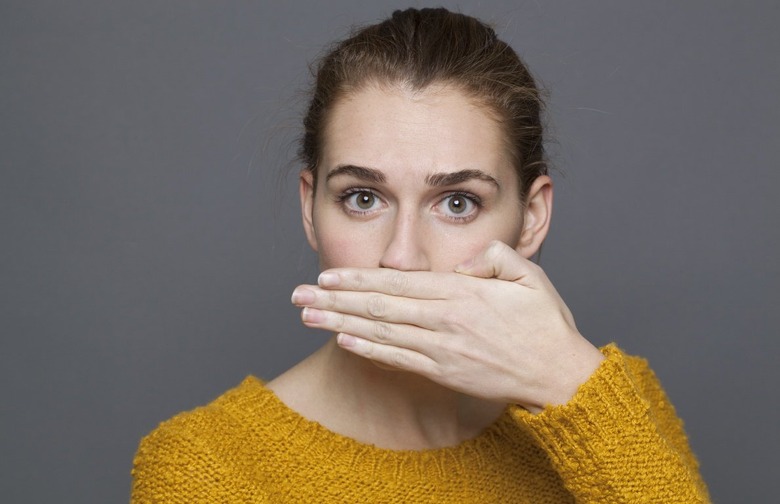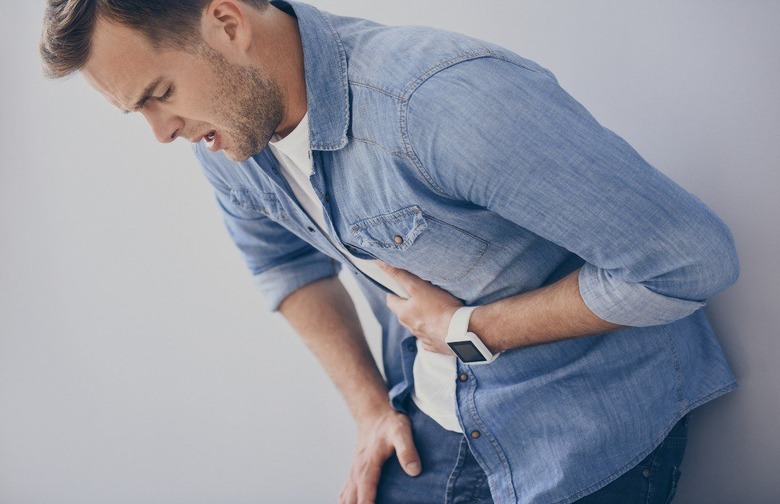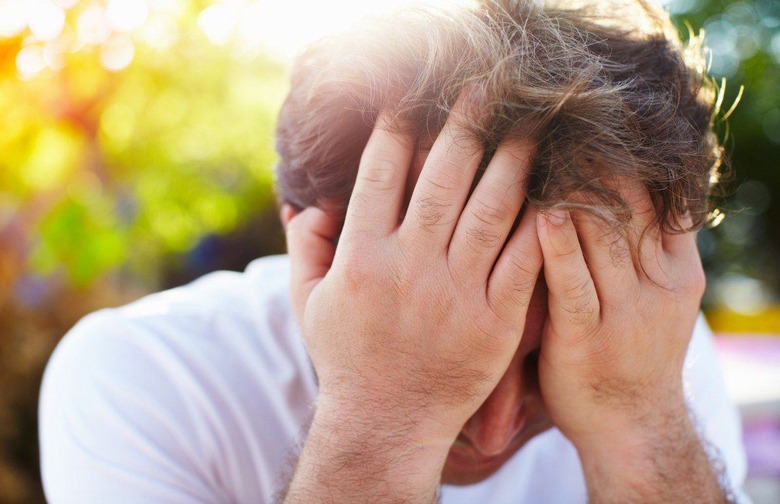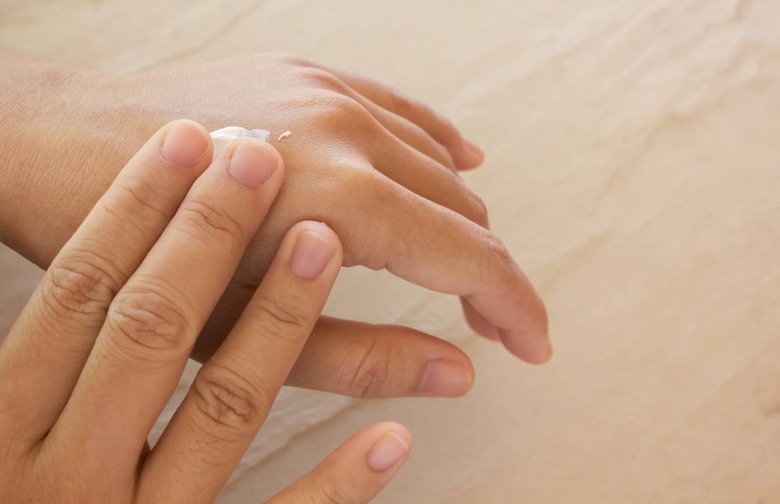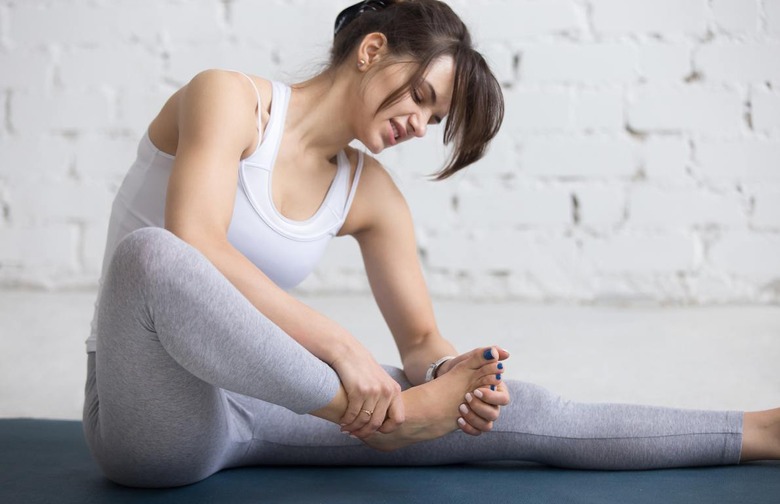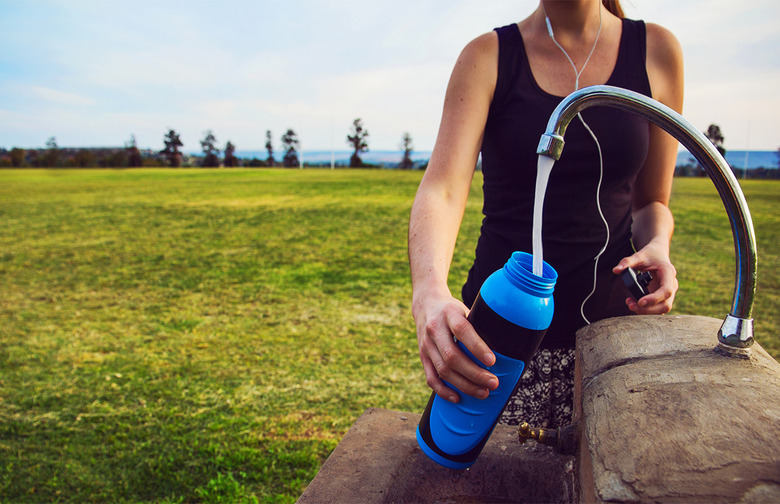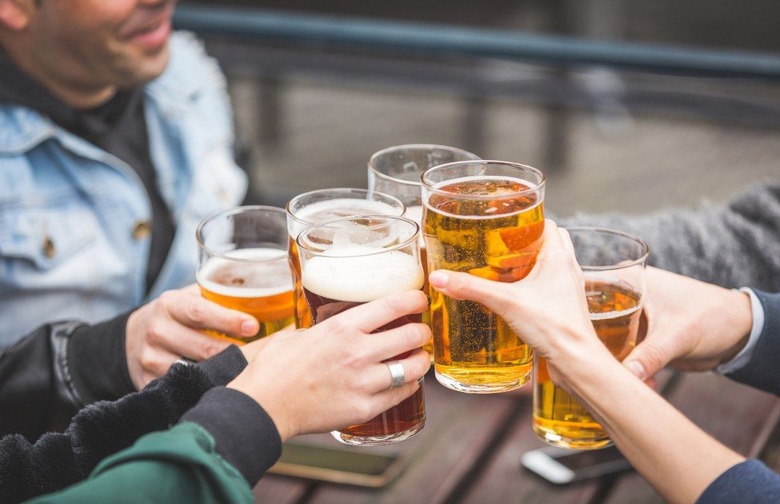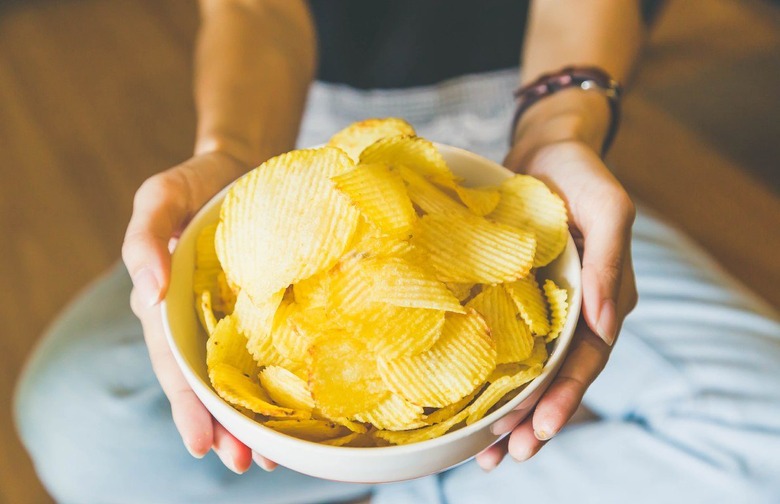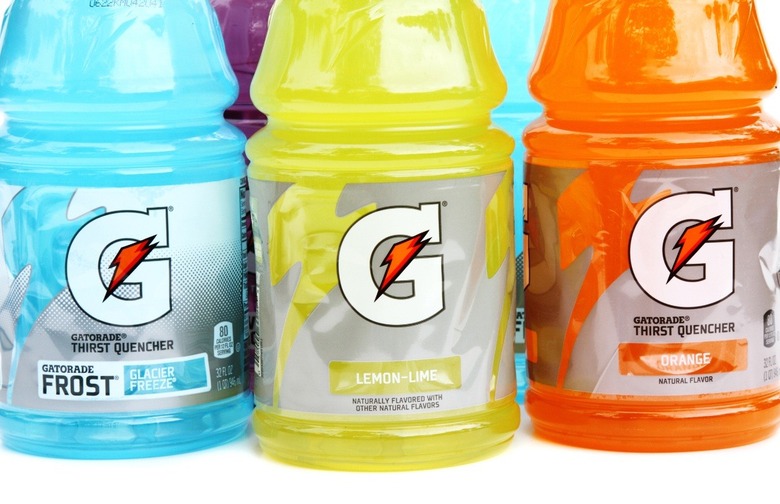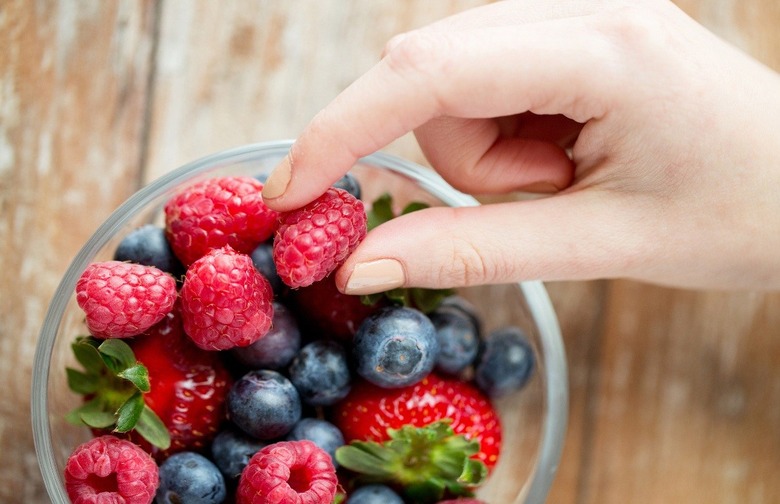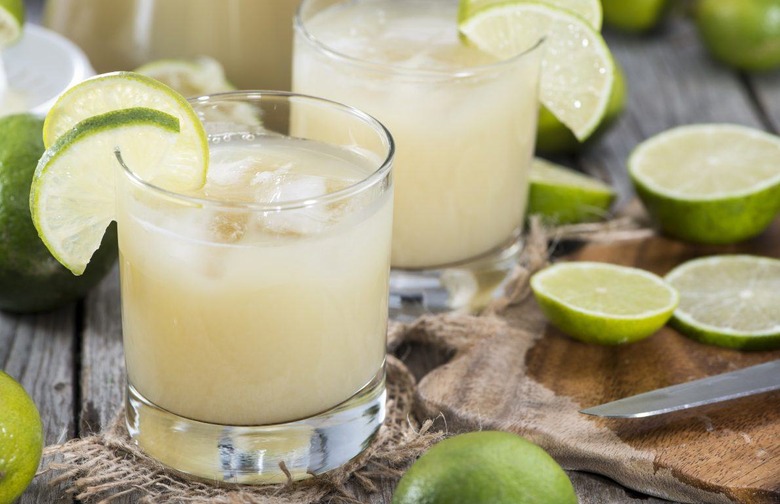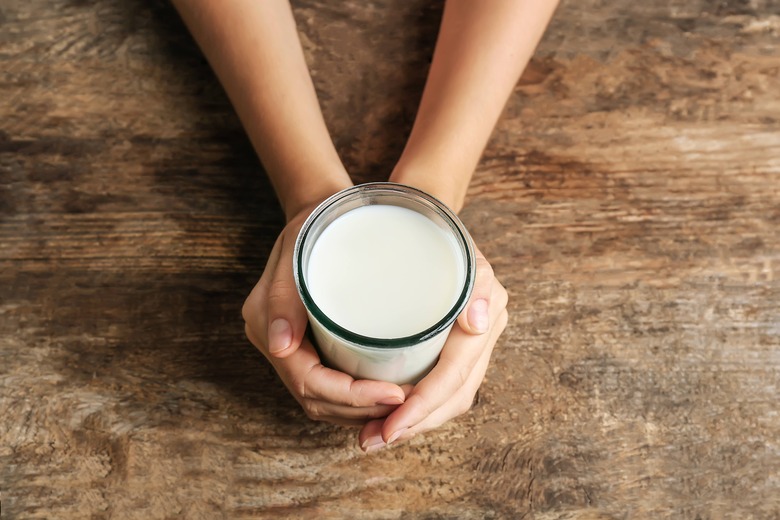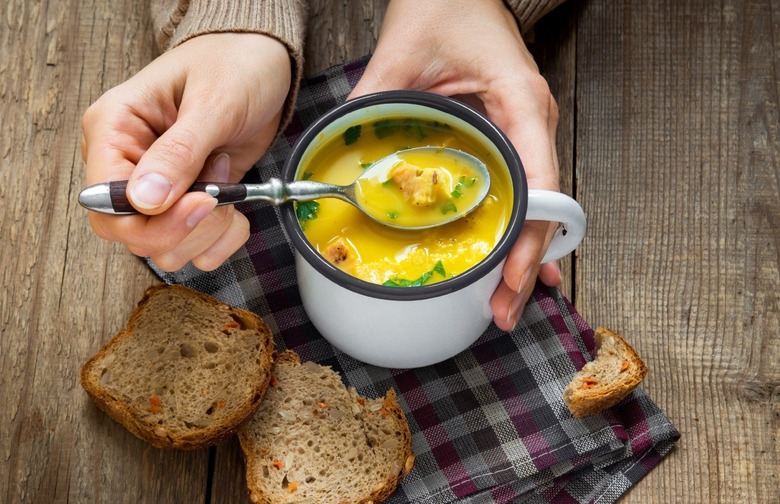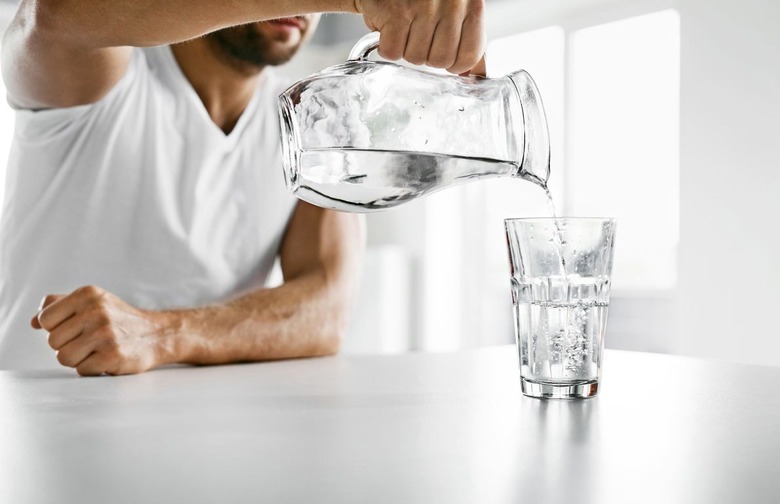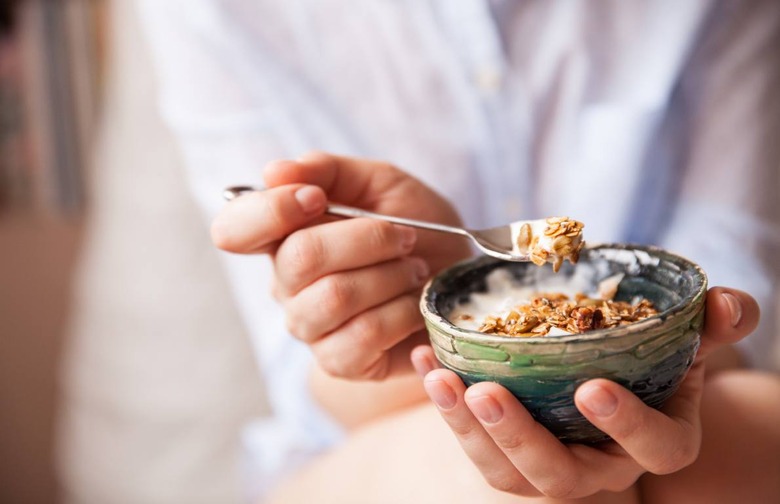10 Signs You're Dehydrated — And How To Hydrate Fast Slideshow
Whether you're outside enjoying warm summer weather or just living a busy lifestyle, it can be all too easy to slip into dehydration. Doctors recommend that you drink at least eight glasses of water each day. However, it can be all too easy to forget. On hot summer days, it's tempting to get caught up in walking outside or tanning on the beach while completely forgetting to sip on some water along the way.
When you are dehydrated, you want to rehydrate as fast as you can. Dehydration can be harmful to the body, taking away its ability to regulate its temperature, digestion, and other bodily processes. I know those symptoms sound scary — and the truth is, they are. It is vital to keep the fluid in your body flowing, whether it's during a workout or in the dead of winter.
The condition can come at you fast, and so can its side effects. Disorientation, exhaustion, and nausea are only a few of the uncomfortable sensations that come with being dehydrated. There are many other symptoms of harmful dehydration, as well. Look out for these 10 signs that you're dehydrated so you can stop the condition in its tracks — before it becomes really dangerous.
Bad Breath
Saliva can work to eradicate bad breath due to its antibacterial properties. When you are dehydrated, your production of saliva slows way down. According to John Higgins, MD, chief of cardiology at Lyndon B. Johnson General Hospital in Houston, "If you're not producing enough saliva in the mouth, you can get bacteria overgrowth and one of the side reactions of that is bad breath from chronic dehydration." So unless you want your breath to stink, it's best to drink up.
Constipation
Water does a whole lot for our digestion — including making it easier for your bowels to move things along. Without water, things are more likely to get stopped up.
Cravings for Sweets
When you are dehydrated, your body dips into its stores of glycogen, aka the carbohydrates stored in your body. Sweets are a quick, efficient way to replenish these stores of energy — so you're going to experience some intense cravings. Instead of reaching for the candy, reach for a tall glass of water or a bowl of refreshing fruit.
Dizziness
Dehydration can cause your blood pressure to drop since you have less fluid volume in your blood. Lower blood pressure often results in a feeling of dizziness or vertigo. According to the AHA, even very mild dehydration, wherein you only lose one to two percent of your body weight, can lead to dizziness.
Dry Skin
When your body is lacking water, your blood volume decreases. Blood volume contributes to the hydration of your skin cells — so when you don't get enough water, your skin becomes very dry.
Feeling Cold
When you become dehydrated, your body limits the blood flow that reaches your skin. Your warm blood keeps you feeling nice and toasty — which is why when you don't have enough water, you can start to feel cold, even in the heat of the summer!
Headache
Your brain sits inside of a fluid sac to prevent it from bumping against the sides of your skull. When you don't get enough water, that layer of liquid protection gets thinner, resulting in a headache.
Irritability
"Neurological effects of dehydration can cause irritability," Dr. Luga Podesta, a sports medicine specialist in Los Angeles, told CNN, recalling a study wherein 25 women were adequately hydrated and 25 women were not. The women who consumed slightly less water — only one percent less hydration than usual — reported higher levels of irritability.
Muscle Cramping
You are especially susceptible to this symptom in warmer weather. When your muscles heat up, they are more likely to seize up — the uncomfortable cause of cramping. "Changes in the electrolytes, changes in the sodium and potassium can lead to muscle cramping as well," says Higgins. All of these imbalances could be caused by dehydration.
Sleepiness
Your body needs water to perform its daily functions — so when you lose water, it becomes less efficient and slows down. This attempt to preserve energy and fuel results in sleepiness.
10 Ways to Hydrate Fast
If you notice any of these symptoms, don't worry: There are steps you can take to get your fluid flowing again. Trying any or all of these ten tips can help you rehydrate fast when you really need to — remember, by the time you feel thirsty you're already dehydrated!
Avoid Caffeine, Junk Food, and Alcohol
Alcohol, sugary and oily foods, and caffeine are diuretics and are all linked to an increase in urine production. You're trying to get your body to retain water, not flush it out. Not only is abstaining from these substances good for your health in the long run, but it also can prevent dehydration from happening in the future.
Eat Something Salty
Sodium is a necessity in any diet due to its ability to regulate water in the body. Too much sodium can dehydrate you, but too little can make rehydrating really difficult. Snack on some pretzels or a salted banana (many runners' go-to to hydrate before a long run) to regulate your water levels and keep your fluid balanced.
Electrolytes
Electrolytes, the stars of sports drinks and coconut water, are particles in liquid that help your body to retain more water. Drinking these alongside smaller amounts of water can help prevent hyponatremia, a condition athletes experience when they drink too much water and decrease the sodium levels in their blood.
Fruit
Many fruits, such as watermelon and strawberries, are comprised of over 90 percent water. Munching on these can help you rehydrate while adding vital nutrients and fiber into your diet. The natural sugars in fruit will also help you replenish stores of glycogen — helpful if you are rehydrating after an intense workout.
Lie Down
When you're dehydrated, you want to use as little extra energy as possible. Your body needs all the energy it can get in order to replenish the fluid stores in your body and return to its full working capacity. Lie down and rest to ensure that you aren't using up more water than you need to in the process of trying to hydrate.
Make Yourself a Lime Cocktail
To make your own electrolyte-filled drink at home and avoid the negative effects of classic sports drinks, combine a mixture of fruit, salt, and sugar. For optimal hydration, you want a ten to one ratio of sugar to salt — a ratio that also helps with taste. Citrus can pack an extra hydrating boost, so we recommend using lime to go with your sugar and salt. Simply take a full glass of water, add the sugar and salt, and squeeze some lime juice in the mix.
Milk
To everyone's surprise, studies show that milk actually may be more efficient at hydrating your body than just plain water. To hydrate most efficiently, buy a low-fat or skim milk. The fat in regular milk can slow fluid replacement in the body.
Soup
Soup contains sodium and water — the dynamic duo of rehydration. Add some vegetables in there for an added boost of nutrients and you're good to go.
Water
Though it's the most obvious choice, it's also the best one. At the most basic level, dehydration is caused by a need for water. Just be sure to sip slowly — guzzling too much all at once can slow the process and may only really serve to nauseate you and increase urination.
Yogurt
Plain yogurt contains about 85 to 88 percent water and is loaded with potassium and sodium. All three of these qualities make it ideal for rehydrating your body as quickly as possible. Add fruit to your yogurt or try something else new with the creamy food for an extra hydrating boost.
For zesty summer food recipes, read 10 Fresh Fruit Salsa Recipes You'll Need This Summer.

